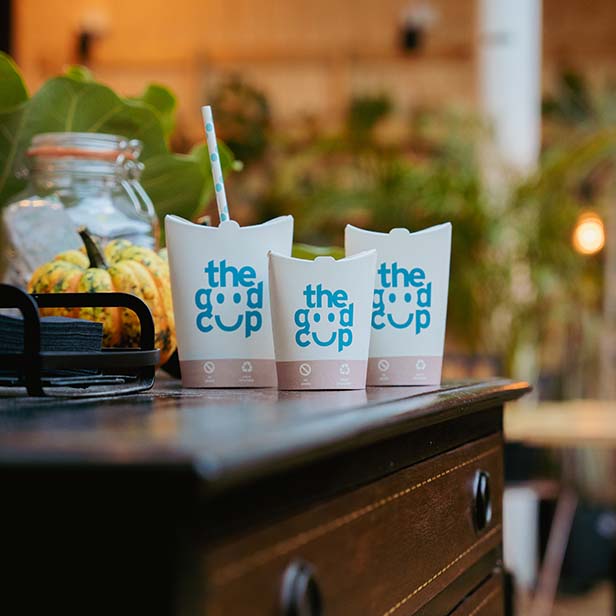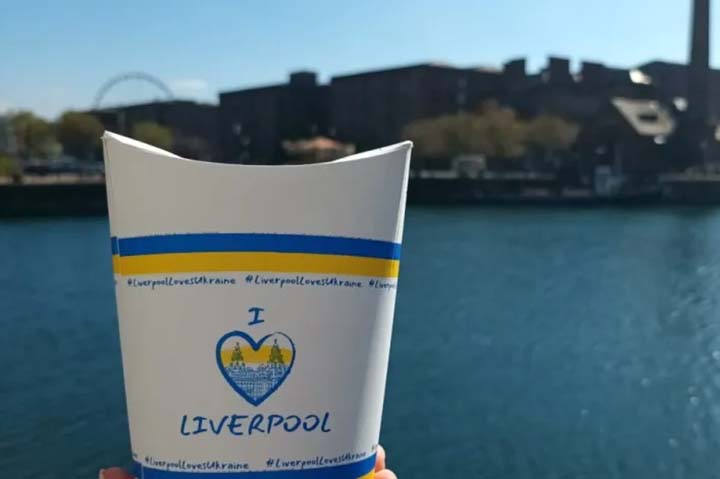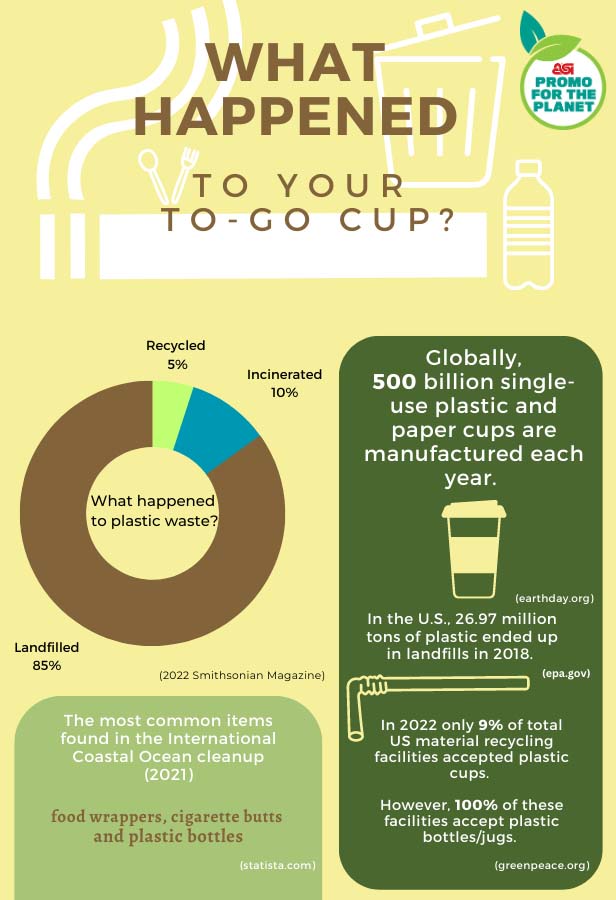Sustainability June 28, 2023
Building a Sustainable Single-Use Coffee Cup
The Good Cup is a recyclable plastic-free container that has an origami-style fold-and-snap lid integrated into the design.
It’s no secret that Americans love their coffee. In New York City alone, there are 241 Starbucks locations. In fact, a 2023 report by the National Coffee Association found that 65% of American say they had consumed a cup of joe the day before. But our caffeine addiction comes with an environmental cost: 50 billion single-use cups are trashed in the U.S. each year, by some estimates.
Cyril Drouet and Paul Wong, co-founders of The Good Cup, wanted to create a solution to this pressing problem.

The Good Cup features an integrated lid that folds and snaps in place, eliminating the need for a separate plastic lid.
Designed in an origami style with the lid built into the cup itself, The Good Cup is made of FSC-certified paper with an aqueous coating, rather than the plastic lining that many single-use paper coffee cups have. The integrated lid folds and snaps into place. It’s fully recyclable and home compostable, according to the company, and can be used for hot or cold drinks.
“It eliminates the need for an extra lid,” says Wong, who is also the company’s vice president of manufacturing. “The top part of the paper cup can be folded to protect the beverage that’s inside.”
This video demonstrates how The Good Cup’s integrated folding lid works.
Drouet was inspired to create The Good Cup last year after attending a concert and witnessing the amount of plastic cup lids being thrown away. Disposal of single-use coffee cups is indeed a problem. Many are lined with a plastic coating that’s difficult to recycle. And while plastic cups for iced coffees are meant to be recyclable, many still end up in landfills. In 2022, only 9% of U.S. material-recycling facilities accepted plastic cups, according to a report from Greenpeace. What’s more, only 2% of those facilities accepted plastic lids and caps.
In 2018, the U.S. generated 35.6 million tons of plastic waste overall, but only about 3 million tons were recycled, according to the most recent figures available from the Environmental Protection Agency (EPA). The vast majority, about 75%, of plastic waste was landfilled.
“Plastic will stay on earth for hundreds of years,” Wong says. “Recycling is a great way of protecting the environment, but the problem is that not everything is being recycled.”
Plastic lids for single-use coffee cups are made from a plastic that’s difficult and costly to recycle. Paper and pulp lid alternatives are “valid choices” to remove plastic from coffee cups, according to Wong, “but these choices are very expensive to make.”
The Good Cup’s integrated lid is a more cost-efficient alternative since it doesn’t require extra material to make a separate lid, Wong says. The product has received several accolades for this innovation, including a 2023 German Design Award.
Fully customizable with printed logos and designs, The Good Cup is already in use in Europe, Australia and Japan – and is starting to receive interest in the U.S., as well. During the Eurovision Song Contest, held earlier this year in Liverpool, England, drinks were served in a limited-edition version of The Good Cup to raise money to help support people displaced by the war in Ukraine.

During the 2023 Eurovision Song Contest, drinks were served in a limited-edition version of The Good Cup to raise money for those displaced by the war in Ukraine.
Confronting the issue of single-use plastic requires a multi-pronged approach. Some coffee shops, for instance, encourage the use of ceramic mugs for drinks consumed in-house. Still, Wong says, there are some downsides: They’re breakable and require a lot of water – a scarce resource – to clean. “Making a ceramic mug actually takes a lot more energy, raw material and all that compared to a paper cup,” he adds.
Commuters can also use their own double-walled travel tumbler (which abound in the promo products industry) for a fill-up. But there are plenty of times a person forgets to bring their reusable tumbler with them – and some event venues might not allow outside items – so there are plenty of instances where a sustainable single-use option would come in handy. Drouet and Wong believe The Good Cup could fill that need.


Promo for the Planet is your destination for the latest news, biggest trends and best ideas to help build a more sustainable and socially-responsible industry.
